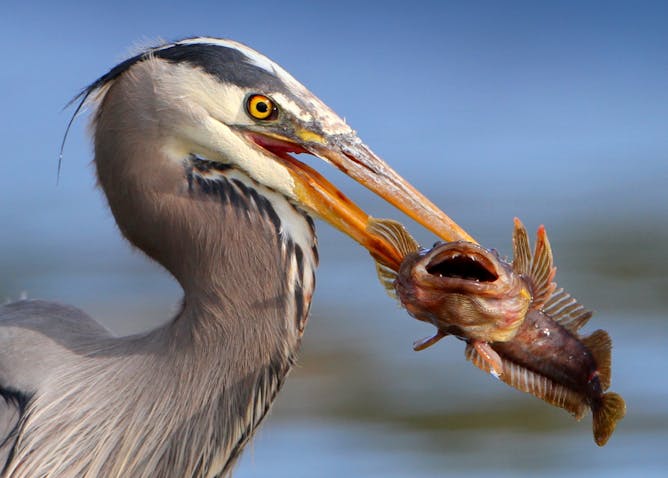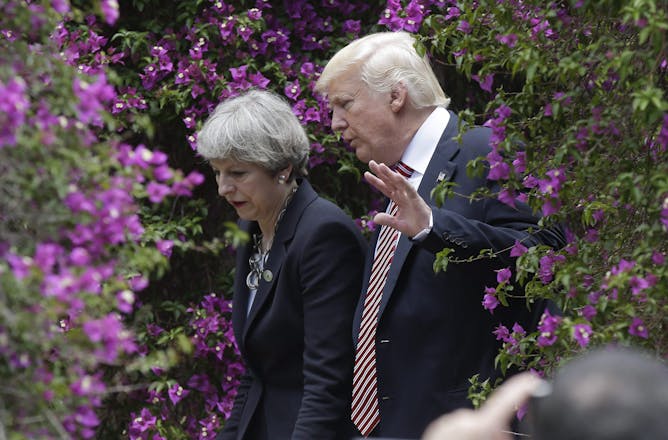| |
|
|
|
|
|
|
| |
|
The lasting impact of contact sports
|
|
The Grey Cup is Sunday and even if you’re not an ardent Canadian Football League fan, chances are you may gather around the TV, cook up some chili and down a few beers as you watch Calgary and Toronto play. It’s a great Canadian tradition. John Connolly and Michael Noseworthy will be watching – both as football fans and because they have a professional interest in the health of the players. Today in The Conversation Canada, Profs. Connolly and Noseworthy report on groundbreaking research they’ve done at their lab at McMaster University on the brains of former CFL players. “Some former players showed readings similar to those one would find in a coma patient,” they write. “It was astounding to us that the most deeply affected men were still standing, let alone able to carry on everyday conversations.” McMaster’s work, called Collision Course, was conducted in conjunction with the Hamilton Spectator. Read our article by the McMaster researchers and then for even more about the dangers of brain injuries in CFL players, take the time to read the excellent series by the Spectator’s Steve Buist.
Mercury levels in seabirds living off the coast of British Columbia have been stable in recent years. That sounds like a good thing. But Kyle Elliott, Canada Research Chair in Arctic Ecology at McGill University, and Mehrnoosh Azodi, a research assistant at McGill, report that new research suggests this may be due to changes in the diet of the seabirds, not pollution control.
In discussions about climate change, there’s little consideration what role pension funds could play. But Deborah de Lange of Ryerson University notes Canada’s top pension funds have done little in terms of their investment strategy to divest their fossil fuel holdings for more sustainable energy projects.
And finally, Randall Mark Wigle, a professor of economics from Wilfrid Laurier University, is on a sabbatical in the U.K. this year. He offers a unique Canadian observation to the ongoing Brexit debate and how the British government believes it will be able to sign new trade deals once it leaves the E.U. “While Theresa May has asserted that the U.K. is a very attractive partner for negotiating trade agreements, there is no historical precedent for renegotiating such a wide range of agreements in the short time line available,” says Prof. Wigle.
Regards,
|
|
|
Today's Featured Stories
|

Brain damage linked to concussions in football can resemble that found in elderly and comatose patients but there may be ways to prevent it so the sport continues. Toronto Argonauts’ Jeffrey Finley, left, rushes to take down Calgary Stampeders’ quarterback Bo Levi Mitchell in this August file photo.
( THE CANADIAN PRESS/Jeff McIntosh)
John Connolly, McMaster University; Dr. Michael D. Noseworthy, McMaster University
Concussions in football and other contact sports correlate with severe, long-term brain damage — but science shows it doesn't have to be that way.
|

Pacific seabirds, such as this Great Blue Heron, can accumulate mercury in their bodies from the fish they eat.
(Flickr)
Kyle Elliott, McGill University; Mehrnoosh Azodi, McGill University
Mercury levels in seabirds living off the coast of British Columbia have been stable in recent years. New research suggests that this may be due to changes in their diet, not pollution control.
|

Canada’s pension plans are failing to divest of fossil fuels. But today’s pensioners, and those of the future, will benefit from pension plans choosing ethical and sustainable investments.
(Shutterstock)
Deborah de Lange, Ryerson University
Canada's biggest pension plans are failing to divest of fossil fuels. Climate change demands pension plans start to invest in sustainable industries that benefit Canadians.
|

U.S. President Donald Trump, right, talks with British Prime Minister Theresa May in Italy in May at a G7 summit. Trump has crowed about a “very quick” U.S.-U.K. trade deal.
(AP Photo/Luca Bruno)
Randall Mark Wigle, Wilfrid Laurier University
Donald Trump views himself as a deal-maker, so the prospect of a "quick" trade deal between the U.K. and the U.S. seems unlikely, despite the American president's earlier optimism.
|
Culture + Society
|
-
Ryan Kellus Turner, St. Edward's University
In the minds of many, the assassination remains a tragedy cloaked in mystery. How does this lack of closure – and the general distrust it fomented – resonate in American culture and politics today?
|
|
Politics
|
-
Kenneth Morrison, De Montfort University
Bosnian Serb general found guilty of genocide.
-
Susan Hutchinson, Australian National University
As foreign Islamic State fighters return home, there needs to be proper prosecution of sexual violence in armed conflict.
|
|
| |
| |
| |
| |
| |
| |
|
|
|
|
|
|
|
|